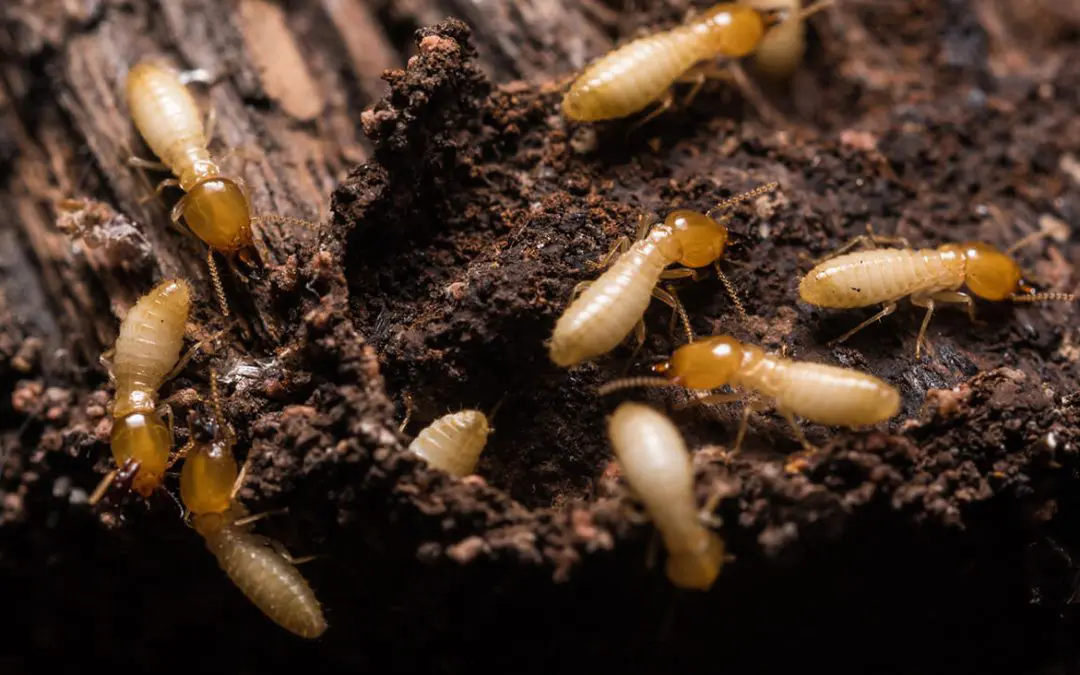Termites are problematic pests that can wreak havoc on your home’s structure if left unchecked. These tiny pests can go unnoticed for years, slowly but surely damaging the building materials of your house. To protect your home from termites, it’s essential to take proactive steps in prevention. This guide provides comprehensive strategies to prevent termites at home.
Understanding Termites
Termites are small, wood-eating insects that thrive in warm, moist environments. There are several types of termites, including subterranean, drywood, and dampwood termites, each with distinct behaviors and habitat preferences. Subterranean termites, for example, build colonies in the soil and create mud tubes to access food sources above ground, while drywood termites infest dry wood directly.
Moisture Control Will Help Prevent Termites at Home
One of the most effective ways to prevent termites is to control moisture levels in and around your home. Termites are attracted to damp environments, so reducing excess moisture is crucial.
Ensure proper drainage around your home’s foundation to prevent water from accumulating. Clean and repair gutters regularly to avoid water buildup. Use dehumidifiers in basements, crawl spaces, and other moisture-prone areas. Fix leaks in plumbing, roofs, or walls promptly.
Eliminating Wood-to-Ground Contact
Termites often enter homes through wood-to-ground contact, giving them access to their primary food source. To minimize this risk, take the following measures.
Maintain a gap between soil and wooden structures, such as siding, decks, and porches. Use concrete or metal barriers to separate wood from soil. Replace wooden elements with termite-resistant materials like treated lumber or composite materials. Regularly inspect and maintain fences, trellises, and other outdoor wooden structures.
Proper Storage of Firewood and Debris is Crucial to Prevent Termites at Home
Storing firewood, lumber, and other wooden debris near your home can attract termites. To reduce this risk, follow these guidelines:
Store firewood and lumber at least 20 feet away from your home. Elevate stored wood off the ground to prevent direct contact with soil. Regularly clean up fallen branches, leaves, and other yard debris.
Sealing Cracks and Crevices
Termites can enter your home through even the smallest cracks and crevices. By sealing these entry points, you can make it more difficult for termites to invade.
Inspect your home’s foundation, walls, and roof for cracks and seal them with appropriate materials. Use weatherstripping to seal gaps around doors and windows. Install screens on vents and openings to prevent termite access.
Regular Inspections and Professional Help
Even with the best preventive measures, regular inspections for signs of termite activity are essential. Early detection can save you from extensive damage and costly repairs.
Inspect your home’s foundation, crawl spaces, attic, and wooden structures for signs of termites, such as mud tubes, discarded wings, and hollow-sounding wood. Schedule annual professional termite inspections to ensure comprehensive monitoring.
Chemical Treatments and Barriers Will Prevent Termites at Home
In addition to physical barriers and maintenance practices, chemical treatments can provide an extra layer of protection against termites.
Apply termiticides around the perimeter of your home to create a chemical barrier. Use borate treatments on wood during construction or renovation to make it less attractive to termites. Consider installing bait stations around your property to monitor and control termite activity.
Landscaping Considerations
Your landscaping choices can also impact termite prevention. Proper planning and maintenance can reduce the likelihood of termite infestations.
Avoid planting trees and shrubs too close to your home, as their roots can create pathways for termites. Use mulch sparingly and keep it at least 15 inches from your home’s foundation. Regularly trim vegetation to prevent it from touching your home’s exterior.
Preventing termites requires vigilance, regular maintenance, and proactive measures. By understanding termite behavior and implementing these strategies, you can protect your home from these destructive pests. Early detection and professional assistance are key components of effective termite prevention. Taking these steps will help your home remain safe and termite-free.
FAQs to Prevent Termites at Home
How often should I inspect my home for termites?
It is advisable to inspect your home for termites once per year. Regular inspections help detect any signs of termite activity early, allowing you to address potential infestations before they cause significant damage.
Can termites spread from neighboring properties?
Yes, termites can spread from neighboring properties, especially subterranean termites, which can travel through the soil. If your neighbors have a termite infestation, it’s important to take extra precautions and possibly seek a professional inspection for your own home.
Can termites damage non-wood materials in my home?
While termites primarily feed on wood, they can also damage other materials in search of food, including paper, insulation, and even some plastics. Subterranean termites, in particular, can create extensive tunnel systems that may affect the integrity of non-wood structures.
How long do termite treatments last?
The longevity of termite treatments can vary depending on the type of treatment used. Liquid termiticides can protect for up to five years, while baiting systems require regular maintenance and monitoring. It’s important to follow up with regular inspections and re-treatments as necessary to ensure continued protection.
Home Inspectors of Columbus offers inspections to homebuyers and sellers in the Chattahoochee Valley of Georgia. Contact us to schedule our services.

